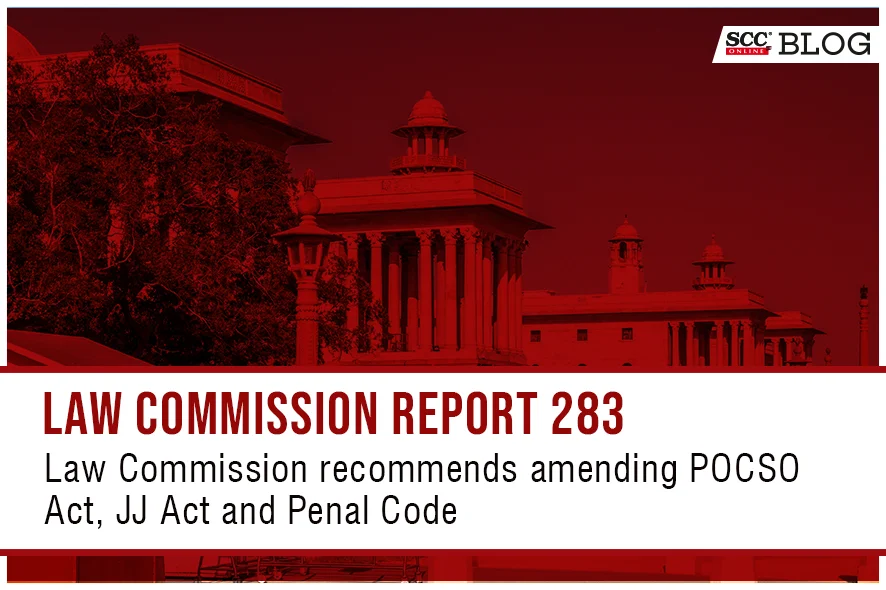
However, the Commission was of the view that it is not advisable to tinker with the existing age of consent under the POCSO Act.


On 27-9-2023, the Law Commission of India publishes its Report No. 283 on the subject “Age of Consent under the Protection of Children from Sexual Offences Act, 2012” (‘POCSO’). The Report talks about bringing certain amendments in the POCSO Act to remedy the situation where there is a tacit approval in fact and not a consent in law on part of the child aged between 16 to 18 years. However, the Commission was of the view that it is not advisable to tinker with the existing age of consent under the POCSO Act.
The Karnataka High Court (Dharwad Bench) asked the Commission to rethink the age criteria for consent under the POCSO Act considering the rising number of cases relating to minor girls above the age of 16 years coming to relationships, eloping and having sexual intercourse with boys, thereby attracting the provisions of POCSO Act and Penal Code, 1860.
The Madhya Pradesh High Court (Gwalior Bench) also drew Commission’s attention on how the enforcement of the POCSO Act causes gross injustice in cases of rape where de facto consent is present. The Court also requested to suggest amendment to the POCSO Act, vesting discretionary power in the Special Judge to not impose the statutory minimum sentence in cases where de facto consent is apparent on part of the girl child or where such a relationship has culminated in marriage, with or without children.
The Commission, in consultation with National Commission for Protection of Child Rights (‘NCPCR’), former judges, lawyers, child rights activists, NGOs and academicians having expertise in this field, examined the judgements rendered by the High Court of Karnataka and Madhya Pradesh in State of Karnataka v. Basavraj , (2023) 1 AIR Kant R 23 and Veekesh Kalawat v. State of Madhya Pradesh. [Misc. Criminal Case No. 4521 of 2023] respectively.
Law Commission View:
After reviewing the existing child protection law, various judgments and considering the maladies of child abuse, child trafficking and child prostitution, plaguing our society, the Commission was of the view that it is not advisable to tinker with the existing age of consent under the POCSO Act.
Although, the Commission also considered it necessary that there is a need to bring certain amendments in the POCSO Act to remedy the situation where there is a tacit approval in fact and not a consent in law on part of the child aged between 16 to 18 years. The Commission said that such cases do not merit to be dealt with the same severity as the cases that were ideally imagined falling under the POCSO Act. Therefore, the Commission introduced guided judicial discretion in the matter of sentencing such cases ensuring that the law is balanced thus safeguarding the best interests of the child.
Recommendations of Law Commission:
Chairperson: J. Ritu Raj Awasthi
Full-time Members: J. K.T. Sankaran
Prof. (Dr.) Anand Paliwal